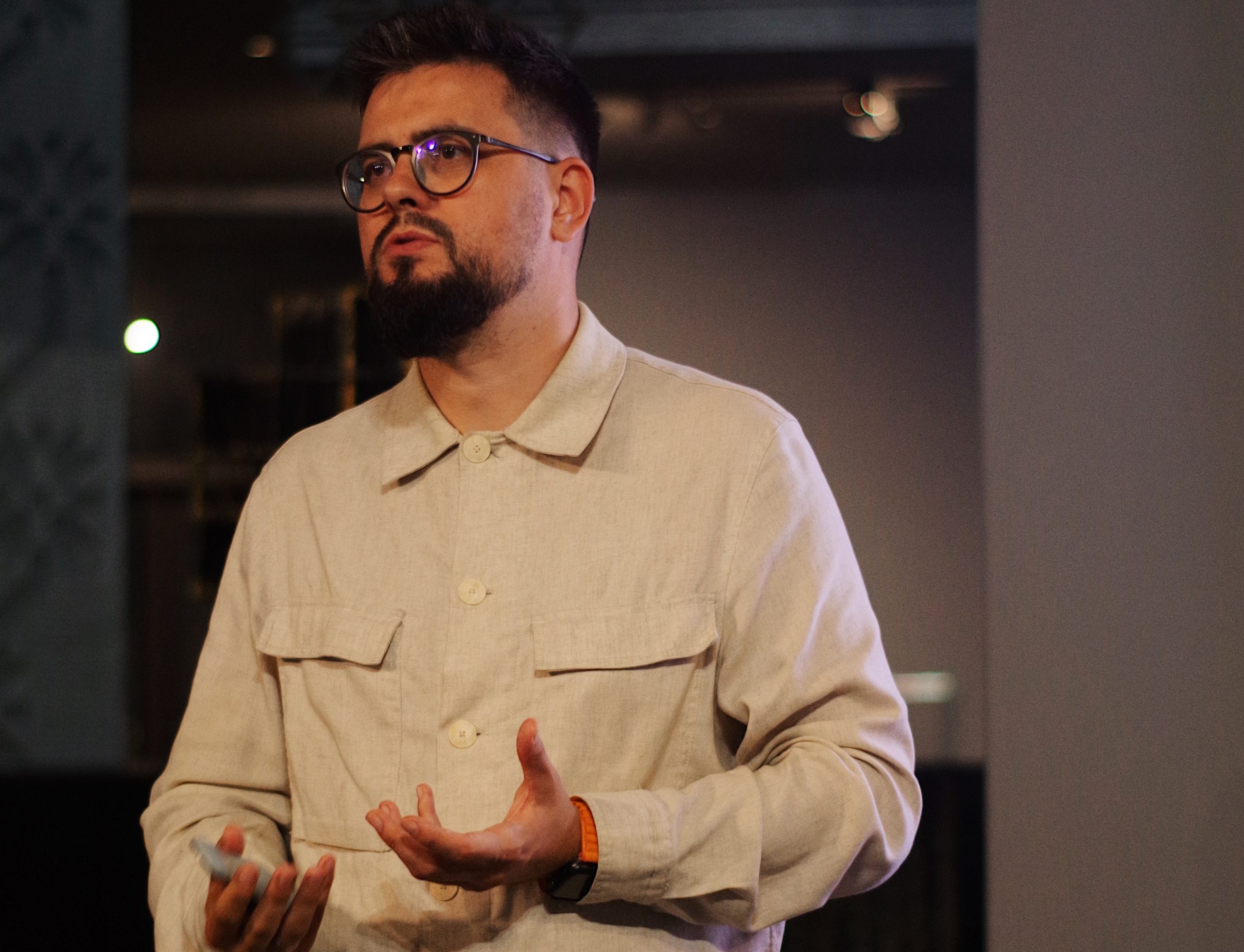Lecture “Understanding and support. How to communicate with military who have returned from war”
On 16 July, the Museum’s Hall of Memory hosted a lecture “Understanding and Support. How to communicate with the military who returned from the war”.
Military psychologist and PhD in Psychology, veteran Oleksii Karachynskyi, spoke about the basic rules of communication with veterans in both private and public spaces. First, it is essential to understand how a person’s personality can transform after participating in hostilities. There are veterans for whom the world becomes a matter of black and white. The world of war is simple and emotional. It is clear who is a friend and who is an enemy. All you have to do is follow orders. A person lives one day at a time, and life seems more tangible when death is near. In the hardest moments, the primary thing is to survive. This is how values crystallise. In ordinary life, there are other categories of values. ‘It’s not a bad thing, it’s just a different context, different worlds,’ says Mr Oleksii. A peaceful life involves career development, interesting leisure activities, travelling, sports, health, caring for your family, planning for the future, etc. But when death and war are close by, the goals narrow down: to survive, to save your brothers and sisters, to kill the enemy, to complete a task. There is a difference in values in civilian life and at the front. That is why when a person returns to civilian life, certain misunderstandings and conflicts can arise.
Fun and entertainment at the rear can trigger those who have just returned from the front. When the picture changes dramatically, a big gap in values is visible. Or if one person volunteers to serve, he or she cannot force others to follow their example. Therefore, there may be a heightened sense of injustice. And this happens automatically, which can be a reason for potential misunderstandings and conflicts.
Oleksii Karachynskyi notes that war is the most primitive way to resolve a conflict. The army is about authoritarianism and force. Therefore, some veterans may transfer the usual way of solving problems by force to civilian life. And this is also a problem.
The military psychologist stressed: ‘We are united by our common experience’. However, a person who has experienced war does not always have anything to talk about with civilians. They understand that they do not have the same past and will never be understood, and they do not want to hear about the problems of others. There is also a phenomenon where sometimes we unconsciously devalue the problems of another person. Then there is a breakdown in empathy and a feeling of alienation. In such cases, a veteran may have a desire to return to the war in a simple and understandable world.
We become friends because we can trust each other, be weak, knowing that we will be supported. Therefore, we need to communicate with the military who have returned from the war in the same way as before. We need to look for common experiences, hobbies, follow old traditions or create new ones. It is about stability and predictability. For emotional protection, constancy is the foundation.
Usually, adaptation takes 2-5 weeks,’ says Oleksii Karachynskyi. “At this stage, you shouldn’t get upset if something doesn’t work out. But if there is no adaptation in society, then you can seek help. Integration is crucial because there should be no people isolated from society. The lecturer spoke about the rules of communication with veterans. You should not run up to veterans outside and thank them; passive gratitude is more important. The culture of gratitude can take different forms, such as offering discounts, providing free services, or giving good tips.
In a private conversation, you do not have to avoid talking about the war entirely, but you should not ask about all the details. You can ask about general things. For example, what is the difference between a battalion and an infantry, an armoured personnel carrier and an infantry fighting vehicle, or what types of drones are available? This is a safe space during a conversation, where a person can feel like an expert and feel comfortable. You need to be natural and sincere in your communication, and show active and interested listening. After all, if you feel indifferent, a negative attitude will be formed, and the veteran will not want to share his personal life a second time.
Finally, Oleksii Karachynskyi stated that today it is also crucial to respond to traces of trauma and injury. War veterans do not seek pity; rather, they desire to be treated with respect. It is essential to acknowledge their personal qualities, such as a good sense of humour and attentiveness.
